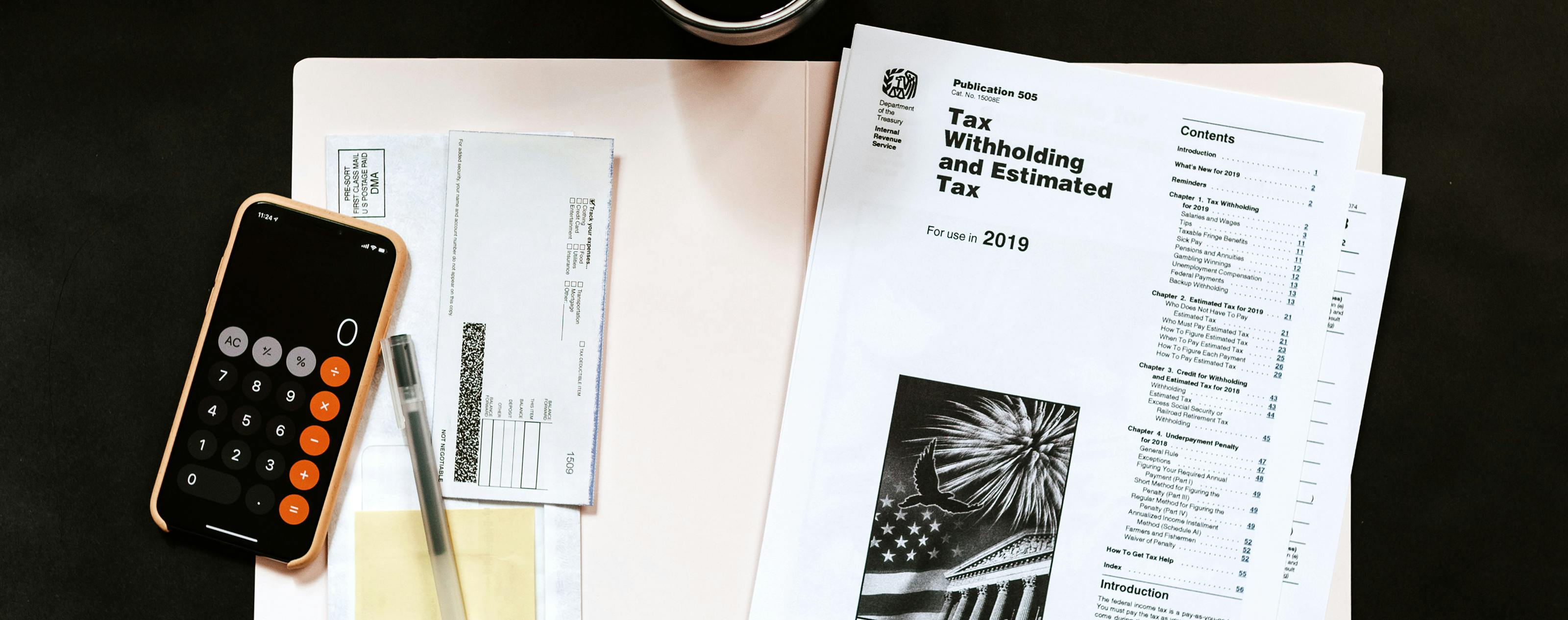
Top 10 IRS Scams to Avoid
Themba Wahlstrom
Apr 8, 20225 min read
As everyone is getting ready for tax season, so are scammers and fraudsters. So we’ve compiled all the IRS scams that you might face as you file your taxes. This article is for our US readers.
Do yourself a favor and review this list. It might save you from losing a lot of money.
The latest top 10 IRS scams:
1. Threatening a Lawsuit
The IRS lawsuit scam is one of the most common that American taxpayers face, and millions are lost each year to them. Scammers use email, phone calls and even regular mail to pretend to be the IRS, but a lot of the time it is an IRS email scam. They will threaten lawsuits for not complying and will try and get you to settle by paying money directly.
Remember: According to the IRS, they don’t ‘initiate contact with taxpayers by email, text messages or social media channels to request personal or financial information.’They also do not: Ask for credit or debit card numbers over the phone.
2. IRS Scam Robocall
The most common of these scams, often with threats of lawsuits, comes in the form of an automated ‘robocall’. The recording is an automated voice that says the IRS is filing a lawsuit against you, and to call back to a certain number. (Hint, it’s not the real IRS). With robocalls like this, they are able to quickly target millions of taxpayers over their mobile devices, with high chances that some unlucky folks will fall for it. But, does the IRS call you? Sometimes, but expect to have correspondence by mail (refer to previous paragraph).
3. Social Security Account number IRS Scam
Your Social Security number, or SSN, is amongst the most sensitive of your personal details. The SSAN tax scam is carried out by scammers threatening to suspend or cancel the victim’s SSN if demands aren’t met. What makes this a tax-related scam is that scammers may mention overdue taxes in addition to threatening to cancel the person’s SSN. In an IRS email scam like this, they will try to sound official, often using pre-recorded robocalls. This is to scare you into parting with your money or private info. Hint: Nobody can ‘cancel’ your SSAN, not even the federal government. You’re stuck with this identifier, for life.
Remember: The IRS may call you, but not without attempting to contact you via mail first. If they call you, they will never demand money. Best practices include visiting your local IRS office or calling into a regional office’s switchboard number, directly from the IRS website.
4. Ghost Tax Return Scam
This is a common scam where someone pretending to be a proper tax preparer will assist you with your taxes but will not sign the tax return they prepare (which is a standard practice for anyone who helps you with your taxes). They can also be called ‘ghost preparers.’ They may then organize for the tax refund to go into their bank account, not yours! Check for proper credentials when using tax professionals. Never hand over your tax files to anyone not certified in your jurisdiction. Check licensing!
5. Pandemic (COVID-19) Related Tax Fraud Schemes
Many reports have emerged of scammers attempting to defraud people by suggesting misuse of pandemic related assistance, Economic Impact Payments (EIPs), or stimulus packages. In a classic ‘Phishing’ style attack, they will pretend to be from the IRS, the Treasury Department or even law enforcement agencies. They will ask for payment, often in the form of debit cards, gift cards or asking for bank accounts and routing numbers. This is quite often a phone IRS scam. Be smart!
6. Interest and Penalty Free Extensions for a Discount/Fee
If it sounds too good to be true, it probably is. The IRS will allow ‘relief’ from payment obligations for certain circumstances, but remember this: The IRS is not in the business of discounts, they are a government agency.
Cryptocurrency-Related Tax Scams
Scams involving cryptocurrency have exploded in recent years. Justice.gov defines these as: So, the range of cryptocurrency scams is large. With regulation and safeguards to the new crypto space always playing catch-up, all we can advise is to be very careful with anything crypto-related.
Remember: If you are asked to make a payment using a gift card, IT IS A SCAM. Never do this in any context, but in particular when dealing with tax, the IRS and government agencies.
8. Investing Tax Refunds in Cryptocurrency for Alleged Tax Circumvention in the Future
Though similar to the last point, we thought this deserved its own spot on the list. Some enterprising scammers are convincing unlucky victims that their tax refunds can be placed somewhere outside of the IRS’s reach, despite the IRS taxing cryptocurrency profits just like any other asset.
9. Reduction in Tax Jeopardy if Paid by Debit Cards or Credit Cards
Being in ‘tax jeopardy’ or getting a ‘jeopardy assessment’ can be a stressful circumstance, not least because of the penalties involved. This is why these scams, where tax-related penalties or issues can be resolved with an immediate payment in the form of a ‘fee’, are so successful. Hold off on paying over the phone and only communicate with the IRS through their regular channels.
10. Unemployment Fraud
Unemployment fraud can take many forms, as con artists exploit the safety net that the government provides. However, with many losing their jobs during the pandemic period and filing for unemployment, one to look out for is the identity theft based scam. If you receive a Form 1099-G for unemployment compensation that you haven’t actually received, your identity could already have been stolen. If there is any indication that this has happened, go to law enforcement authorities directly for advice.
4 Tips to recognise a tax scam – THE IRS NEVER DOES THIS:
- Call to demand immediate payment using a specific payment method such as a prepaid debit card, iTunes gift card or wire transfer. The IRS does not use these methods for tax payments.
- Ask a taxpayer to make a payment to a person or organization other than the U.S. Treasury.
- Threaten to immediately bring in local police or other law-enforcement groups to have the taxpayer arrested for not paying.
- Demand taxes be paid without giving the taxpayer the opportunity to question or appeal the amount owed.
Source (IRS)
What else can I do?
Download Truecaller for your cell phone – this is a free call blocking app that also has intelligent spam and scam protection to detect fake IRS calls, robocalls, telemarketers and other types of unwanted numbers. The app identifies names of international landlines and cell phones numbers. With messaging scams on the rise, Truecaller’s Smart SMS can filter out and identify scam texts, too!
The IRS was used as a source for this article. The IRS website is a great resource for any tax-related questions and also to double check if someone is attempting to scam you. Visit it at https://www.irs.gov/
For more information on scams, the US Department of the Treasury and The Department of Justice also have online resources.
To stay tuned for more updates, visit,Instagram India, Facebook,TwitterTwitter India. Yes, we are available to you everywhere.

Themba Wahlstrom
Apr 8, 20225 min read


